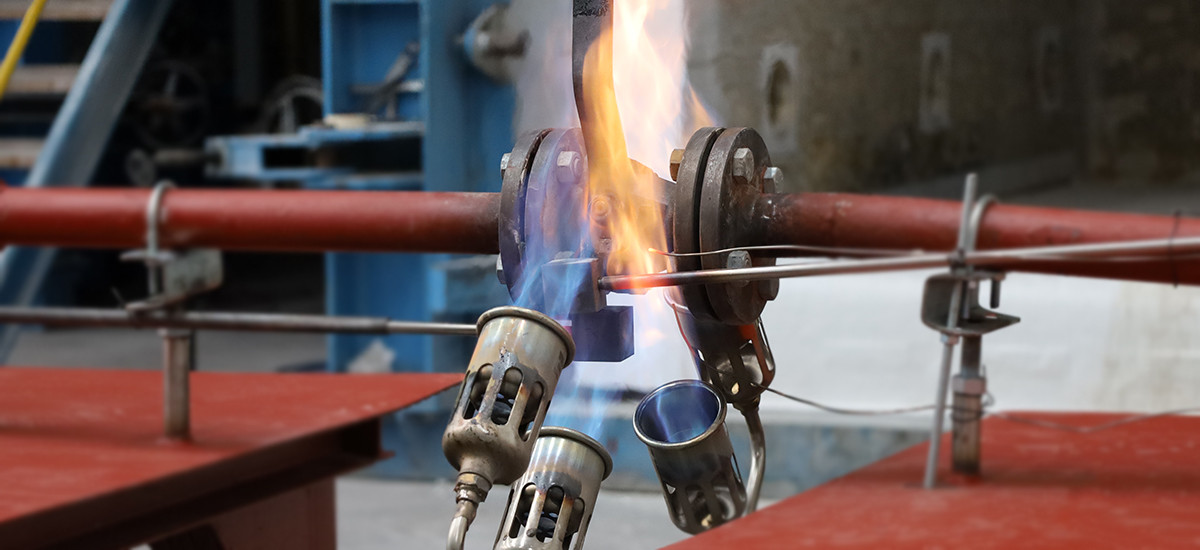7/3/2023
Valves play a crucial role in controlling the flow of liquids, gases and steam in various industrial and commercial applications. In the case of fire outbreaks, the integrity of valves can be severely impacted, leading to dangerous leaks and uncontrollable flow of flammable substances.
It is therefore important to ensure that the valves used in high-risk areas are capable of performing as intended in a fire scenario.
There are several fire testing standards that are used to evaluate the fire performance of valves. Some of the most widely recognised standards include:
- API STANDARD 607: Fire Test for Quarter-turn Valves and Valves Equipped with Nonmetallic Seats
- ISO 10497: Testing of valves – Fire type-testing requirements
The fire testing process involves exposing the valve to flame temperatures up to 1000 °C for 30 (+5, -0) minutes and other environmental factors, such as sudden cooling, that are similar to those encountered during a fire incident. Through-seat leakage and external leakage are measured and recorded during both burn and cooldown periods. Through-seat leakage expresses the amount of fluid that is exuded from the internal seal in the stream direction whereas external leakage expresses the amount of fluid that escaped the valve’s body to the atmosphere. The valve’s performance is evaluated based on its ability to maintain operability while preventing leakage by retaining sealing and integrity.
Based on the results of these tests, manufacturers, designers and regulators can make conscious decisions regarding the selection and usage of valves in critical applications.
Efectis Era Avrasya is the first and single fire resistance laboratory in Türkiye that performs accredited fire tests according to API STD 607 and EN ISO 10497 standards.
In our fire test laboratory, we are able to do fire tests on both metallic seated and soft seated valves that are up to DN 200 in size and up to Class 300 in pressure rating, with plans to expand this range in the future with the right partners.
Contact: turkiye@efectis.com

